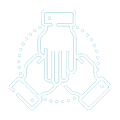Alcohol Addiction Treatment
When someone you love suffers from Alcohol Use Disorder (AUD), commonly referred to as alcoholism it can feel like you have nowhere to turn. Whether you are witnessing your partner’s quiet spiral into dependency or struggling privately with your own relationship with alcohol, the emotional toll is profound. You may feel overwhelmed, isolated, and unsure how to take the first step toward meaningful alcohol addiction treatment.
At Blair Wellness Group in Beverly Hills, we treat Alcohol Use Disorder and other substance-related challenges with the dignity, discretion, and expertise our clients deserve. AUD is a complex medical illness, not a moral failing. Its impact can unravel the emotional and relational stability of even the most successful individuals and families. For those silently battling addiction, particularly high-achieving professionals who appear composed on the surface, this struggle often remains hidden behind work, achievement, or status.
We help clients reconnect to their sober, authentic self and support loved ones who are navigating the pain of watching someone they care for wrestle with dependency

Alcoholism Psychologist Near Me
If you are searching for a psychologist for alcohol use in Beverly Hills or the surrounding areas, Blair Wellness Group offers a safe and confidential environment for healing. We recognize the immense pressure you may be under, both personally and professionally, and we are here to help you find clarity and resilience.
For some, the grip of alcohol serves as a way to manage stress, suppress emotional discomfort, or avoid unresolved trauma. For others, the addiction may manifest more subtly, masked by success, control, and routine. This is often referred to as being a high-functioning alcoholic, a term that describes individuals who continue to perform outwardly but are suffering inwardly. Whether you identify with this or are seeking private addiction therapy for a loved one, you are not alone.
Our treatment for alcoholism may include the following:
- One-on-one individualized sessions with a licensed clinical psychologist
- Family therapy and partner support to rebuild communication and trust
- Comprehensive therapeutic modalities, including Cognitive Behavioral Therapy (CBT), Dialectical Behavior Therapy (DBT), Gestalt, and Existential Therapy
- Referrals to residential or outpatient treatment centers, if needed
- Recommendations for ongoing support and community resources

Understanding Alcohol Use in Professionals
Studies show that professionals in high-pressure industries, such as executives, physicians, attorneys, and entrepreneurs, are at increased risk for developing problematic drinking patterns. Long hours, chronic stress, and the expectation of performance can lead to unhealthy coping mechanisms. Yet many feel ashamed to admit they need help, fearing judgment, exposure, or the loss of control.
At Blair Wellness Group, we provide discreet alcohol counseling for professionals that respects your privacy, protects your reputation, and offers real, lasting solutions. Our Concierge Therapy model ensures highly personalized care, flexible scheduling, and cultivating relationships based on trust.
If you are a partner or spouse of someone struggling with alcohol use, you may feel helpless, frustrated, or emotionally exhausted. Therapy can be the bridge between your partner’s pain and their healing, and your own emotional recovery.
Contact Blair Wellness Group
Blair Wellness Group is a leading provider of alcohol addiction therapy in Beverly Hills, serving clients in Los Angeles, Irvine, Newport Beach, and beyond. Our therapeutic approach recognizes the individuality of each patient and aims to treat the whole person, not just the symptoms. We believe that addiction recovery is not about willpower alone but about rebuilding emotional strength, insight, and relational stability.
Other Services
-
Alcohol AddictionAlcohol Addiction
-
Drug and Substance AbuseDrug and Substance Abuse
-
Food AddictionFood Addiction
-
Pornography AddictionPornography Addiction
-
Sex AddictionSex Addiction
-
Social Media AddictionSocial Media Addiction

Office Hours
Mon - Fri :
7 am - 11 pm
Sat - Sun :
9 am - 10 pm
Get Started Today
Frequently Asked Questions About Alcohol Addiction Treatment
What are the signs of high-functioning alcoholism?
Can Therapy help with Alcohol Use Disorder (AUD)?
Yes. Therapy is a foundational part of effective treatment for Alcohol Use Disorder. At Blair Wellness Group, we offer individualized therapy that addresses the root causes of addiction, such as emotional distress, trauma, anxiety, and perfectionism. Our approach includes Cognitive Behavioral Therapy, Dialectical Behavior Therapy, and other evidence-based modalities tailored to each client.
How is Blair Wellness Group different from traditional rehab programs?
Blair Wellness Group offers Concierge Therapy designed for executives, professionals, and high-achieving individuals who require privacy, flexibility, and discretion. Unlike group-based or inpatient rehab, we provide individualized care in a private setting with customized treatment plans and evening and weekend availability.
Can I seek help for a loved one who is struggling with alcohol addiction?
Yes. Many of our clients are spouses or partners who want to support someone they care about. Therapy can help you understand how to approach your loved one, set healthy boundaries, and receive the emotional support you need during this process.
What causes Alcohol Use Disorder?
Alcohol Use Disorder is a complex mental health condition with biological, psychological, and environmental influences. It may develop due to genetic predisposition, trauma, unresolved emotional issues, chronic stress, or social pressures. Therapy helps uncover these underlying causes and build healthier coping strategies.
Do I need to hit “rock bottom” to seek treatment for alcohol use?
No. You do not need to wait for a crisis to seek help. In fact, early intervention often leads to more successful outcomes. If alcohol use is affecting your health, relationships, career, or emotional well-being, it is time to consider therapy.
Is therapy confidential?
Yes. All therapy sessions at Blair Wellness Group are fully confidential. Our Concierge Therapy model is designed to ensure complete discretion, allowing clients to feel safe and secure while receiving the support they need.
Looking for a Local Psychologist?
Our Psychologists and Therapists in Los Angeles, Beverly Hills, Irvine, Newport Beach, and the surrounding areas offer evening and weekend appointments for our Concierge patients. Contact us today to discover how Blair Wellness Group can help you overcome personal or professional challenges and mental health disorders, such as depression, anxiety, relationship challenges, addiction issues, and personality disorders.
Get the Help You Deserve
We offer evening and weekend appointments for our concierge patients and all patients upon request.
Our Core Values
Discover effective solutions for addiction at Blair Wellness Group today. Call us at 310.999.4996 to schedule an appointment. We welcome patients from Beverly Hills, Los Angeles, Irvine, Newport Beach, and the surrounding areas.

Reliable
At Blair Wellness Group, we are here to meet your clinical needs at any time.

Dedicated Support
Our team provides the compassionate care, support, and necessary interventions needed for our clients to achieve their goals and clinical objectives.

Experience
With 15+ years of clinical experience in providing an array of psychological services, we are committed to helping our patients achieve their goals.

Professional Team Support
We are dedicated to the well-being of our clients and have the extensive training to provide them with high-quality care.
Other Services
-
Alcohol AddictionAlcohol Addiction
-
Drug and Substance AbuseDrug and Substance Abuse
-
Food AddictionFood Addiction
-
Pornography AddictionPornography Addiction
-
Sex AddictionSex Addiction
-
Social Media AddictionSocial Media Addiction

Office Hours
Mon - Fri :
7 am - 11 pm
Sat - Sun :
9 am - 10 pm
Get Started Today
Looking for a Local Psychologist?
Our Psychologists and Therapists in Los Angeles, Beverly Hills, Irvine, Newport Beach, and the surrounding areas offer evening and weekend appointments for our Concierge patients. Contact us today to discover how Blair Wellness Group can help you overcome personal or professional challenges and mental health disorders, such as depression, anxiety, relationship challenges, addiction issues, and personality disorders.
Dr. Cassidy Blair is a renowned Licensed Clinical Psychologist and trusted Performance Coach who specializes in providing Concierge-Psychological Care and Executive Coaching for high-achieving professionals. With a deep understanding of the unique challenges faced by CEOs, executives, entrepreneurs, and leaders, Dr. Blair offers tailored, confidential care designed to foster emotional well-being, personal growth, and professional excellence. Her clientele values her discretion, clinical expertise, and emotionally intelligent approach to navigating complex personal and professional dynamics.
- This author does not have any more posts.


